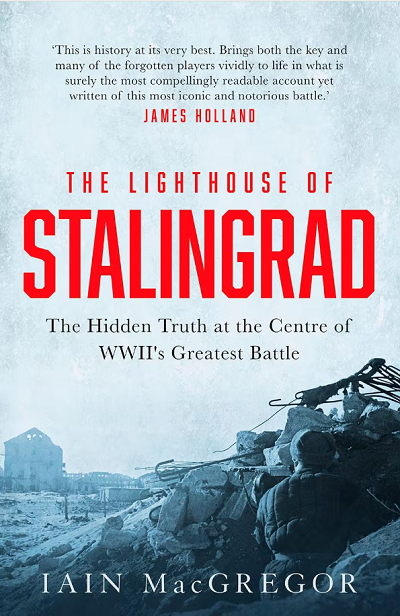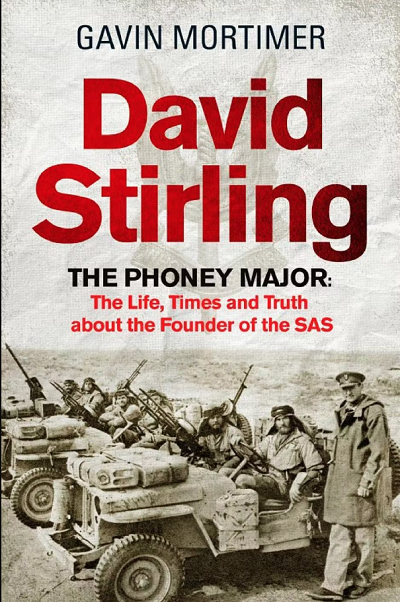World War Two
Published 5 Apr 2024What happened to Italian soldiers overseas after the fall of Mussolini? What about the French soldiers left over in Indochina after the Japanese “occupation by invitation”? And, what did the Allies think of the Italian Communist movement and its partisan forces?
(more…)
April 6, 2024
Italian Communists, the French in Indochina, and the fate of Italy’s army – WW2 – OOTF 34
February 22, 2024
Allied War Crimes, Latin American Troops, and Top-Secret Proximity Fuzes – WW2 – OOTF 033
World War Two
Published 21 Feb 2024Did the Western Allies commit war crimes? What did Latin American troops do during the war? And, how did the top-secret proximity fuze change the face of warfare? Find out in this episode of Out of the Foxholes.
(more…)
February 2, 2024
The Sad Story of Churchill’s Iceman, Geoffrey Pyke
World War Two
Published Jan 31, 2024Geoffrey Pyke is remembered as an eccentric scientist who spewed out ideas like giant aircraft carriers made of icy Pykerete. But there was much more to him than that. He was a spy, a special operations mastermind, and his novel ideas contributed to the success of D-Day.
(more…)
November 19, 2023
How Himmler Learned to Love the Russians – WW2 – Week 273 – November 18, 1944
World War Two
Published 18 Nov 2023Heinrich Himmler wants to build an Army of Soviet POWs, but that has some problems; Patrick Hurley becomes US Ambassador to China, but even before that he’s in hot water with Chiang Kai-Shek; and in the field in the west, the Allies launch Operation Queen to try to cross the Roer River and reach the Rhine.
(more…)
September 21, 2023
Iranian Railways, Red Cross Care Packages, and Tail Gunners – WW2 – OOTF 31
World War Two
Published 20 Sept 2023How did the Allies build and manage an enormous railway supplying the Soviet Union through Iran? How did the Red Cross deliver aid parcels through enemy territory to Allied POWs? And, how effective were the rear gunners in ground attack aircraft like the Stuka and Sturmovik? Find out in this episode of Out of the Foxholes.
(more…)
April 22, 2023
Hitler’s Revenge on the Italian People – War Against Humanity 101
World War Two
Published 21 Apr 2023As the RAF closes in on Berlin and the German Army is running dangerously low on men, the Nazi leadership is determined to use their resources to spread their crimes deeper into Hungary and Italy.
(more…)
December 23, 2022
A Jungle Miracle – War Against Humanity 092
World War Two
Published 22 Dec 2022Two escapes, one from the Nazis in Kovno (Kaunas) Lithuania, from the prison at Fort IX, and one from Japanese terror on Panay in the Philippines this week, will help to document the crimes of the Axis powers.
(more…)
November 25, 2022
The Secret Radio in Auschwitz – War Against Humanity 088
World War Two
Published 24 Nov 2022In Auschwitz the inmates gathering evidence of Nazi crimes score two successes, while the RAF score a direct hit on Goebbels as they set Berlin aflame. In the Pacific the accidental sinking of the SS Suez Maru triggers a Japanese war crime.
(more…)
November 24, 2022
Pavlov’s House, codenamed “Lighthouse” in Stalingrad
In The Critic, Jonathan Boff reviews The Lighthouse of Stalingrad: The Hidden Truth at the Centre of WWII’s Greatest Battle by Iain MacGregor:
In the summer of 1942, with the German army deep inside the Soviet Union, Adolf Hitler launched Operation Blue, an attack from around Kharkiv in south-east Ukraine across hundreds of miles of steppe towards the oil fields of the Caucasus. Part of the plan required the German Sixth Army under General Paulus to secure the flank by seizing the industrial city of Stalingrad on the banks of the Volga.
By the middle of September Paulus’s troops were fighting their way, street by street, building by building, and sometimes room by room, through a city reduced to ruins by artillery shelling and the bombs of the Luftwaffe. The fighting was ferocious. Although by November most of Stalingrad was in German hands, several pockets of resistance still held out. Meanwhile, the Red Army was secretly massing for a counter-attack in the open terrain on either side of the city.
On 19 November 1942, General Zhukov unleashed a giant pincer attack which quickly overran the Romanian, Hungarian and Italian forces protecting Paulus’s flanks. Within days the German Sixth Army found itself trapped in a giant pocket, cut off from the rest of the German army. Here, in the depths of a Russian winter, nearly 300,000 surrounded men tried to hold out as their supplies of food, fuel, ammunition and medicine dwindled away.
By the end of January 1943, all hope of relief was gone. To Hitler’s disgust, Paulus ordered the remnants of his army to lay down their weapons. Of the 91,000 German soldiers sent into captivity in Siberia, only 5,000 would survive to ever see their homes again. Immense and terrible as the battle was — we will never know exactly how many troops took part, nor how many died, but it is probable that the total of dead, wounded and captured on both sides reached two million — Stalingrad was not the biggest battle of the war, nor even the bloodiest. Nonetheless, it remains, alongside Dunkirk and D-Day, among the touchstones of the Second World War, largely because it encapsulates three linked but distinct stories. Iain MacGregor does a fine job of covering each in his rich study.
First, Stalingrad was one of the most important battles of the war. It marked the high-water mark of the Nazi invasion of the USSR and an end to Hitler’s genocidal dreams of destroying the Soviet Union. Before Stalingrad, and the other crushing defeats the Axis suffered at around the same time in Tunisia and the Solomon Islands, the initiative had always lain with Germany and Japan. Afterwards, the Allies decided where, when and how the war would be fought.
MacGregor establishes this context neatly. He explains with just the right amount of detail why Operation Blue was launched and what it hoped to achieve. He offers a clear discussion of the decisions taken, and mistakes made, on both sides; and he hints at the logistical weaknesses that probably damned the Germans to disappointment from the start.
The strongest point of this book, however, is its description of the street-fighting in the heart of the city around a building known as “Pavlov’s House” (codename Lighthouse: hence the title of the book). Here the German 71st and Soviet 13th Guards rifle divisions fought for months. By focusing on this small area and these two formations, MacGregor is able to dig deep enough into the tactical detail to give us a clear sense of the difficulty, violence and terror of urban warfare, without swamping us with repetitive detail. His descriptions of fighting have a cinematic quality, swooping smoothly from panoramic tracking shots of the initial German charge down towards the waters of the Volga into close-ups of bullet-riddled mannequins fought over in the ruins of a department store.
November 7, 2022
Inside the Gulag System – WW2 Special
World War Two
Published 4 Nov 2022Even as the Allied powers condemn the German crimes against humanity, their recent victories are in part thanks to the massive system of forced labour built by Joseph Stalin’s Soviet Union. Over one million prisoners work in the Gulag to power the Soviet war economy.
(more…)
October 22, 2022
Battle of the Bulge 1944: Could the German Plan Work?
Real Time History
Published 21 Oct 2022Sign up for Nebula and watch Rhineland 45: https://nebula.tv/realtimehistory
The Battle of the Bulge was one of the last German offensives during the Second World War. It caught the US Army off guard in the Ardennes sector but ultimately the Allies prevailed. But did Unternehmen Wacht am Rhein (“Operation Watch on the Rhine”) ever have a chance to succeed and reach Antwerp?
(more…)
October 18, 2022
CENSORED: The Great Escape from Death Camp Sobibor – October 16, 1943 – WAH 082
World War Two
Published 16 Oct 2022The German Nazis and their helpers are facing increasing resistance, this week in Rome from the Vatican, and at the Sobibor extermination camp from their victims.
(more…)
October 14, 2022
Nazis Suck at Sabotage – WW2 – Spies & Ties 23
World War Two
Published 13 Oct 2022They say every masterpiece has its cheap copy. Well, the German Sicherheitsdienst are trying to copy the success of the Soviet Partisans. With Walter Schellenberg, Heinrich Himmler, and Reinhard Heydrich in charge, you know it’s going to be a bloody affair.
(more…)
July 27, 2022
When the founder of the SAS was captured by Italian troops in 1943
In The Critic, Saul David describes what happened when Lieutenant Colonel David Stirling was captured during his “most hare-brained scheme” to link up the troops of Britain’s First and Eighth armies in Tunisia:
In January 1943 Lieutenant Colonel David Stirling, founder of the SAS, was flown to Rome for interrogation. He had been captured by the Italians on his “most hare-brained scheme yet” — leading a small raiding party deep into enemy territory in Tunisia to attack lines of communication, reconnoitre the terrain and become the first Eighth Army unit to link up with the First Army advancing from the west.
Cautious when speaking to the Italians, he was “vain and voluble” in conversation with a fellow “captive”, Captain John Richards. Unbeknown to Stirling, Richards was an Anglo-Swiss stool pigeon, Theodore Schurch, who had deserted from the British army and was working for fascist intelligence.
Prior to Schurch’s court-martial for treachery in late 1945, Stirling denied he had revealed any sensitive information. If he had, it was inaccurate and “designed to deceive”. This was a lie, told to protect Stirling’s reputation. In fact, as the British authorities knew all too well from intercepted signals, Stirling had told Richards vital details about current SAS operations, including the location of patrols and their orders. He had even given them the name of his probable replacement as SAS commander: Paddy Mayne.
The story of Stirling’s unfortunate encounter with Schurch has been told before, notably by Ben Macintyre in his bestselling SAS: Rogue Heroes. But Macintyre underplays Stirling’s indiscretion and fails to link it to the many other examples of the SAS commander’s recklessness and poor judgement of character. For Gavin Mortimer, on the other hand, both the capture and loose talk were typical of a man who was “imaginative, immature, immoderate and ill-disciplined”. Small wonder that even his own brother Bill thought he would be better off in a prisoner-of-war camp.
The subtitle of Mortimer’s book — a carefully researched and impeccably sourced take-down of the legendary special forces pioneer — is a corrective to the flattering but inaccurate nickname that was first coined for Stirling by British tabloids during the Second World War. “When word reached Cairo of the Phantom Major moniker,” writes Mortimer, “it must have sparked a mix of hilarity and indignation. All the falsehoods and fabrications would have been harmless enough had Stirling not stolen the valour of his comrades.”
Thread by thread, Mortimer unpicks the myth of Stirling’s life and war service that the subject and his fawning admirers had so carefully constructed, both during and after the war. Stirling was not training in North America for an attempt on Mount Everest’s summit when war broke out in 1939, as he later claimed, but rather working as a ranch hand because his exasperated family hoped it might give the feckless youth some focus and direction.
July 18, 2022
General Patton Orders War Crimes – WAH 069 – July 17, 1943
World War Two
Published 17 Jul 2022This week, we see a contrast in the way different civilians behave within occupied Ukraine, Patton orders war crimes, and Jewish resistance give up one of their own fighters.
(more…)





